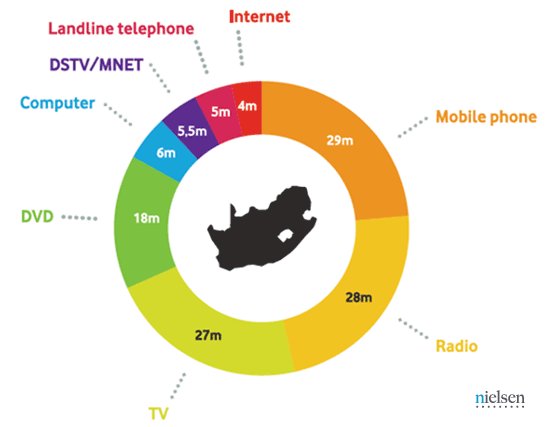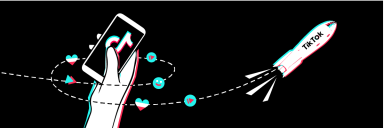Jan Hutton, Director, Telecoms, Nielsen Southern Africa
Africa is in the midst of a technological revolution, and nothing illustrates that fact than the proliferation of mobile phones. Consider this: more Africans have access to mobile phones than to clean drinking water. In South Africa, the continent’s strongest economy, mobile phone use has gone from 17 percent of adults in 2000 to 76 percent in 2010. Today, more South Africans – 29 million – use mobile phones than radio (28 million), TV (27 million) or personal computers (6 million). Only 5 million South Africans use landline phones.

Nielsen’s recently released Mobile Insights study in South Africa, which examined consumers’ usage of and attitudes toward mobile phones, networks and services, reveals a number of interesting insights:
- High levels of network loyalty: 95 percent of subscribers have been with their carrier for an average of 4.2 years, and 81 percent said they’d recommend their network providers to friends and family, reinforcing the importance of word-of-mouth and reputation in the industry.
- Move from pre-paid to contracts: While pre-paid plans still make up between 82 and 85 percent of the market, 25 percent of subscribers say they could switch from pre-paid to contract packages within the next year.
- Network quality a key decision factor: More than a quarter (27%) said they left their previous provider due to poor network quality.
- Nokia rules: More than half (52%) own that company’s handsets, followed by Samsung and BlackBerry, and 56 percent of those currently using other brands indicated their next handset would likely be a Nokia.
How do South Africans Use their phones?
As in other countries, mobile phones are being used in a range of ways aside from talking. South Africa ranks fifth in the world for mobile data usage, ahead of the United States, which ranks seventh.
More than 20 percent of those surveyed said they download ringtones and a similar number said they download music. Wallpapers, screensavers and pictures are also popular downloadables. The mobile phone as an Internet device is also on the rise – 11 percent of South Africans use their mobiles to go online, and consumers aged 25-34 are the heaviest users. Facebook is the most popular social media platform, used by 85 percent of mobile subscribers. Half of all users of Facebook in South Africa access the site via their mobiles. MXIT, a mobile instant messaging platform, is also popular in the country, with 61 percent saying they access the site.
SMS text messaging is practically ubiquitous among South African mobile customers, and is used by almost 4.2 times more people than e-mail. More than two-thirds (69%) of consumers prefer sending texts to calling, in large part because it is less expensive, and 10 percent believe texting to be a faster way of communicating.
The majority (60%) of South African mobile users said they are aware of mobile banking services offered by banks, but only 21 percent say they use such services. A much larger number of those aware of the services said they would never use them, suggesting banks might need to invest in communicating the benefits and security of mobile banking.
This survey provides a comprehensive benchmark against which the changes occurring in the rapidly evolving telecom sector can be measured. When one considers that just three years ago, there were no smartphones being used on the continent, the pace of change is stunning. South Africa is the biggest market, but other countries on the continent are likely to catch up fast.


